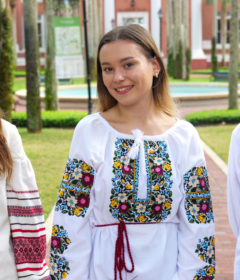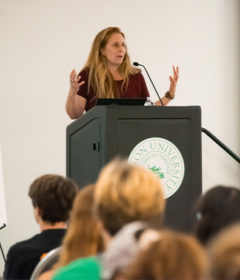Food Studies in the Garden
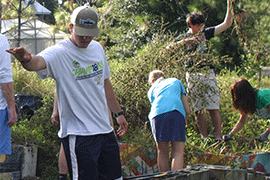
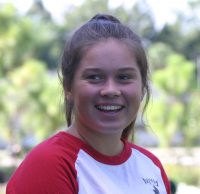
Stetson senior Riley McGovern grew up with food allergies and learned early on about the importance of fresh produce and whole foods.
The Environmental Studies major said she was excited when Stetson launched a new minor degree in Sustainable Food Systems and signed up for Introduction to Food Studies this semester. Students in the class received some hands-on training Friday morning as they pulled weeds in the student-run Hatter Harvest organic garden to prepare for fall planting.

“It would be great if I could get a career in it (Food Studies). That’s my dream,” McGovern said. “But it’s also personal. I was allergic to gluten and diary growing up and then grew out of that allergy, so eating different kinds of foods, eating mostly fruits and vegetables — because there wasn’t a lot of options for gluten-free when I was a kid — opened me up to the whole gardening, fresh fruits, whole-foods world.
“Having a curriculum that goes into that and talks about that is really interesting to me,” she said.
Hatter Harvest is a student-run club that maintains the organic garden behind the Rinker Environmental Learning Center and promotes sustainable farming practices, such as composting and water conservation.
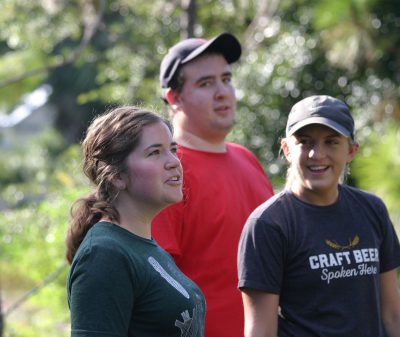
“This is classic experiential learning,” said Sarah Cramer, Ph.D., a Brown Visiting Teacher-Scholar who teaches Introduction to Food Studies and serves as one of the faculty advisers for Hatter Harvest. “We’ve been learning for three or four weeks now about statistics about agriculture and how our food system works, and we’ve talked about crops and livestock and seafood.
“But none of that means as much if you’re doing that in the classroom,” she added. “To be able to connect things that we’re learning with, ‘Oh, growing food is really hard and there’s a lot of weeds and there’s pest and there’s other pressures you have to deal with.’ I think that makes it that much more valuable and it really sticks with you.”
For more info about Hatter Harvest, visit the club’s Facebook page or email [email protected].

